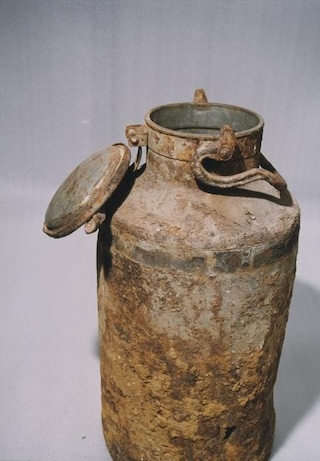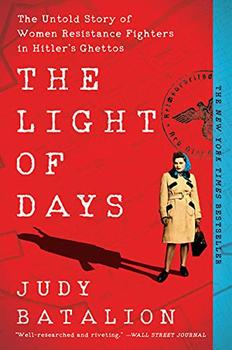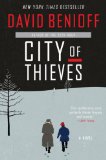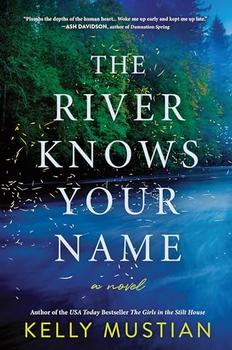Summary | Excerpt | Reading Guide | Discuss | Reviews | Beyond the book | Read-Alikes | Genres & Themes | Author Bio

A heart-wrenching story of love and defiance set in the Warsaw Ghetto, based on the actual archives kept by those determined to have their stories survive World War II
A Read with Jenna Book Club Pick and named a Best Book of 2023 by Kirkus Reviews (Best Fiction Books of the Year & Best Historical Fiction of 2023)
On a November day in 1940, Adam Paskow becomes a prisoner in the Warsaw Ghetto, where the Jews of the city are cut off from their former lives and held captive by Nazi guards, and await an uncertain fate. Weeks later, he is approached by a mysterious figure with a surprising request: Will he join a secret group of archivists working to preserve the truth of what is happening inside these walls? Adam agrees and begins taking testimonies from his students, friends, and neighbors. He learns about their childhoods and their daydreams, their passions and their fears, their desperate strategies for safety and survival. The stories form a portrait of endurance in a world where no choices are good ones.
One of the people Adam interviews is his flatmate Sala Wiskoff, who is stoic, determined, and funny—and married with two children. Over the months of their confinement, in the presence of her family, Adam and Sala fall in love. As they desperately carve out intimacy, their relationship feels both impossible and vital, their connection keeping them alive. But when Adam discovers a possible escape from the Ghetto, he is faced with an unbearable choice: Whom can he save, and at what cost?
Inspired by the testimony-gathering project with the code name Oneg Shabbat, New York Times bestselling author Lauren Grodstein draws readers into the lives of people living on the edge. Told with immediacy and heart, We Must Not Think of Ourselves is a piercing story of love, determination, and sacrifice for the many fans of literary World War II fiction such as Kristin Harmel's The Book of Lost Names and Lauren Fox's Send for Me.
Much of what the narration conveys is rather mundane—a beleaguered population making the best of an increasingly intolerable situation—particularly in the novel's first half. Through interviews we learn how the housewives and children around him cope with such deprivation. We read about people's former lives, their desires and dreams, their loves, and their hopes for a better future. These characters leap off the page; each is unique and beautifully drawn, with their own perspective on their ordeal. These sections read like actual transcripts, with realistic digressions and segues. Sometimes funny, sometimes tragic, sometimes harrowing, the stories form a beautiful mosaic describing the lives of those trapped in the Ghetto...continued
Full Review
(616 words)
This review is available to non-members for a limited time. For full access,
become a member today.
(Reviewed by Kim Kovacs).
 Lauren Grodstein's novel We Must Not Think of Ourselves was inspired by the Oneg Shabbat Project, a World War II archive compiled and hidden by the Jews of the Warsaw Ghetto. Established and run by Dr. Emanuel Ringelblum, the archive contained a wide variety of documents recording daily life in the Ghetto.
Lauren Grodstein's novel We Must Not Think of Ourselves was inspired by the Oneg Shabbat Project, a World War II archive compiled and hidden by the Jews of the Warsaw Ghetto. Established and run by Dr. Emanuel Ringelblum, the archive contained a wide variety of documents recording daily life in the Ghetto.
Ringelblum was born in Buczacz, Poland (now part of Ukraine) in 1900, and after graduating from Warsaw University he taught high school history. He was known as an expert on the history of Poland's Jewish community from the late Middle Ages onward and was a frequent contributor of scholarly articles on the subject.
He was also politically and socially active. As a young man he joined Po'alei Zion Left, a Marxist-Zionist ...
This "beyond the book" feature is available to non-members for a limited time. Join today for full access.

If you liked We Must Not Think of Ourselves, try these:

by Judy Batalion
Published 2022
One of the most important stories of World War II, already optioned by Steven Spielberg for a major motion picture: a spectacular, searing history that brings to light the extraordinary accomplishments of brave Jewish women who became resistance fighters - a group of unknown heroes whose exploits have never been chronicled in full, until now.

by David Benioff
Published 2009
A writer visits his retired grandparents in Florida to document their experience during the infamous siege of Leningrad. His grandmother won't talk about it, but his grandfather reluctantly consents. The result is the captivating odyssey of two young men trying to survive against desperate odds; an intimate coming-of-age tale with an utterly ...



Wherever they burn books, in the end will also burn human beings.
Click Here to find out who said this, as well as discovering other famous literary quotes!